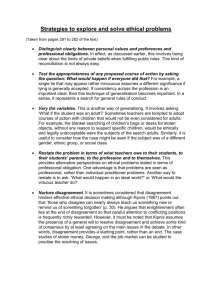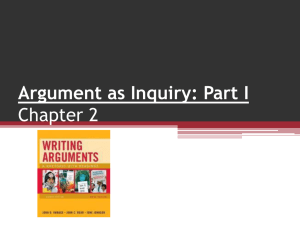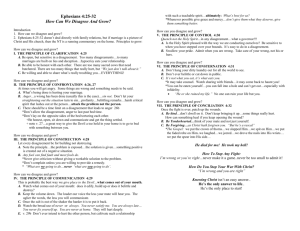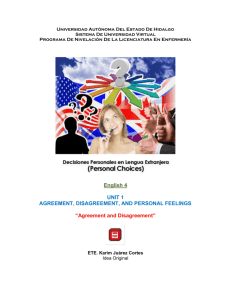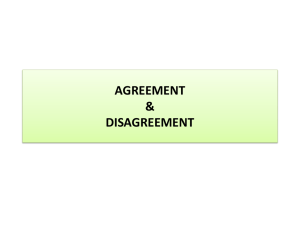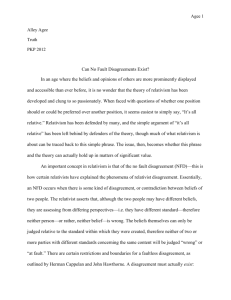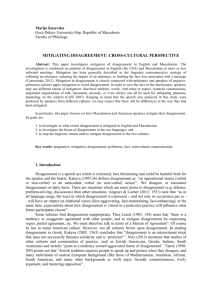4/8 (Andrew King)
advertisement
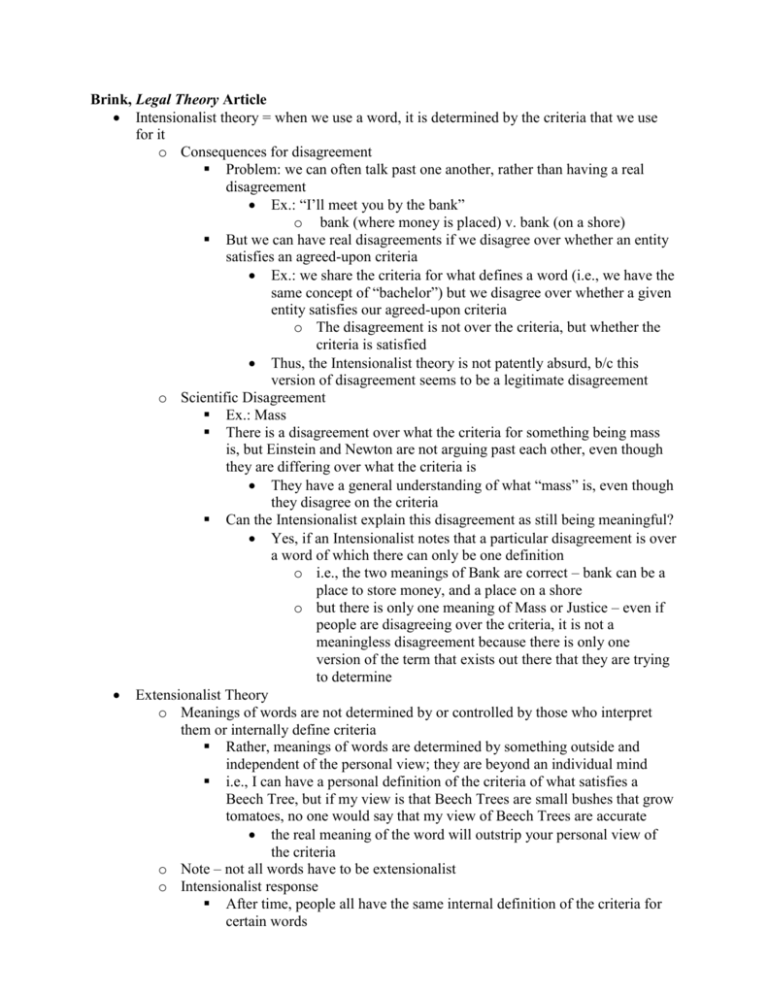
Brink, Legal Theory Article Intensionalist theory = when we use a word, it is determined by the criteria that we use for it o Consequences for disagreement Problem: we can often talk past one another, rather than having a real disagreement Ex.: “I’ll meet you by the bank” o bank (where money is placed) v. bank (on a shore) But we can have real disagreements if we disagree over whether an entity satisfies an agreed-upon criteria Ex.: we share the criteria for what defines a word (i.e., we have the same concept of “bachelor”) but we disagree over whether a given entity satisfies our agreed-upon criteria o The disagreement is not over the criteria, but whether the criteria is satisfied Thus, the Intensionalist theory is not patently absurd, b/c this version of disagreement seems to be a legitimate disagreement o Scientific Disagreement Ex.: Mass There is a disagreement over what the criteria for something being mass is, but Einstein and Newton are not arguing past each other, even though they are differing over what the criteria is They have a general understanding of what “mass” is, even though they disagree on the criteria Can the Intensionalist explain this disagreement as still being meaningful? Yes, if an Intensionalist notes that a particular disagreement is over a word of which there can only be one definition o i.e., the two meanings of Bank are correct – bank can be a place to store money, and a place on a shore o but there is only one meaning of Mass or Justice – even if people are disagreeing over the criteria, it is not a meaningless disagreement because there is only one version of the term that exists out there that they are trying to determine Extensionalist Theory o Meanings of words are not determined by or controlled by those who interpret them or internally define criteria Rather, meanings of words are determined by something outside and independent of the personal view; they are beyond an individual mind i.e., I can have a personal definition of the criteria of what satisfies a Beech Tree, but if my view is that Beech Trees are small bushes that grow tomatoes, no one would say that my view of Beech Trees are accurate the real meaning of the word will outstrip your personal view of the criteria o Note – not all words have to be extensionalist o Intensionalist response After time, people all have the same internal definition of the criteria for certain words i.e., we all know what a chair is because we all share the same individual definition of a chair’s criteria Consequences of Interpreting Legal Texts o Brink – extensionalist is correct, and is especially important in regard to moral terms o Do we need to be Extensionalist about morality Disagreement about morality shows our commitment about the idea of a moral reality The fact that we are all disagreeing with one another about morality demonstrates that we are all committed to determining what is out there, and that there actually is something out there But, is there another way to point to disagreement about morality to believe that there is not anything out there? 1. It is metaphysically impossible for reality to tell us what to do, to provide normative concepts o such normative thought is based on our own intuition and definitions – reality does not tell us what to do, it just tells us what is the case 2. There is no way to observationally verify moral disagreements o the reason why people disagree about morality is different than reasons why physicists disagree about physical reality the theory of physical reality explains the knowledge of physical reality and our ignorance of physical reality the problem w/ ethics is that there is no good causal story about how we know it o BUT – response is that we don’t have this similar type of knowledge with other areas that we all agree are objectively true i.e., mathematics what motivates the view that there are not ethical qualities is not just that people disagree over what morality is

